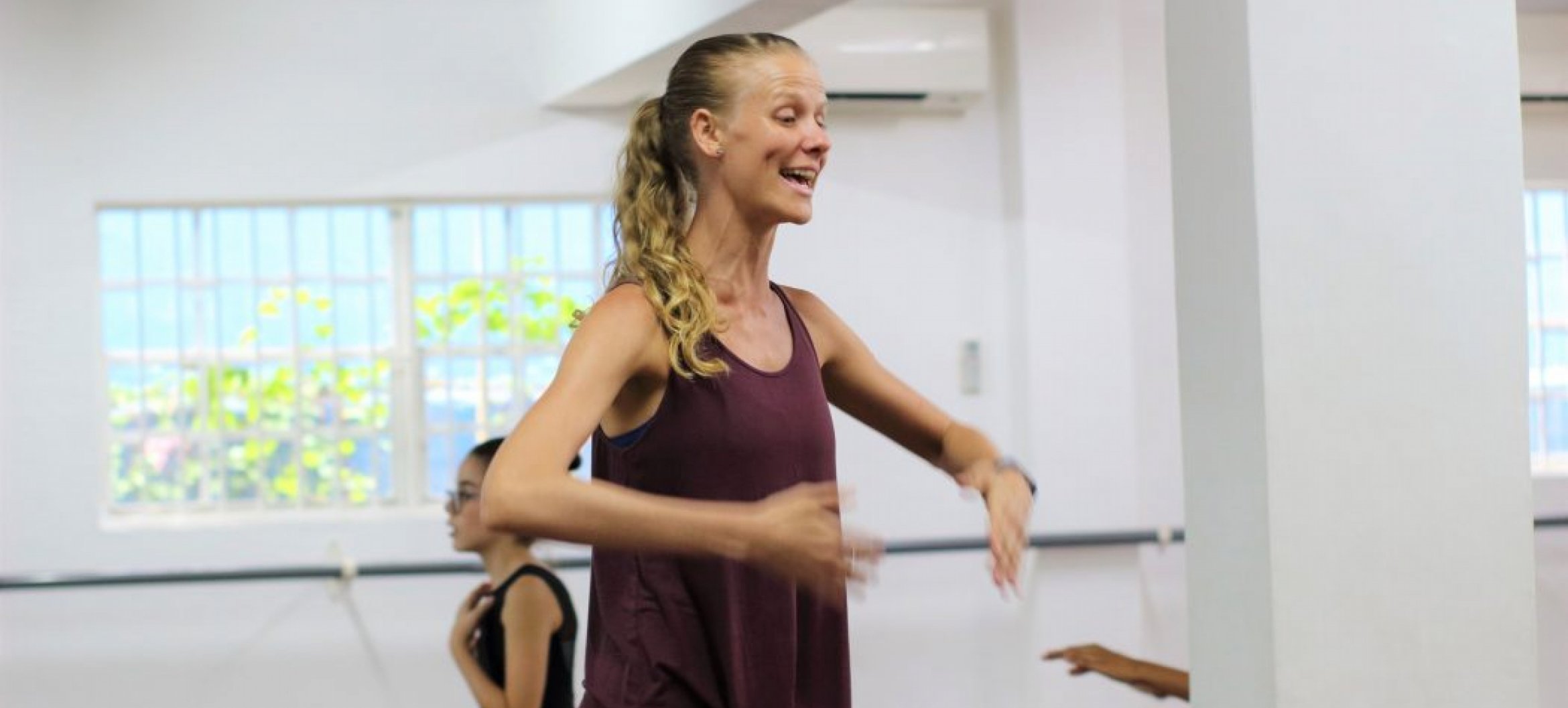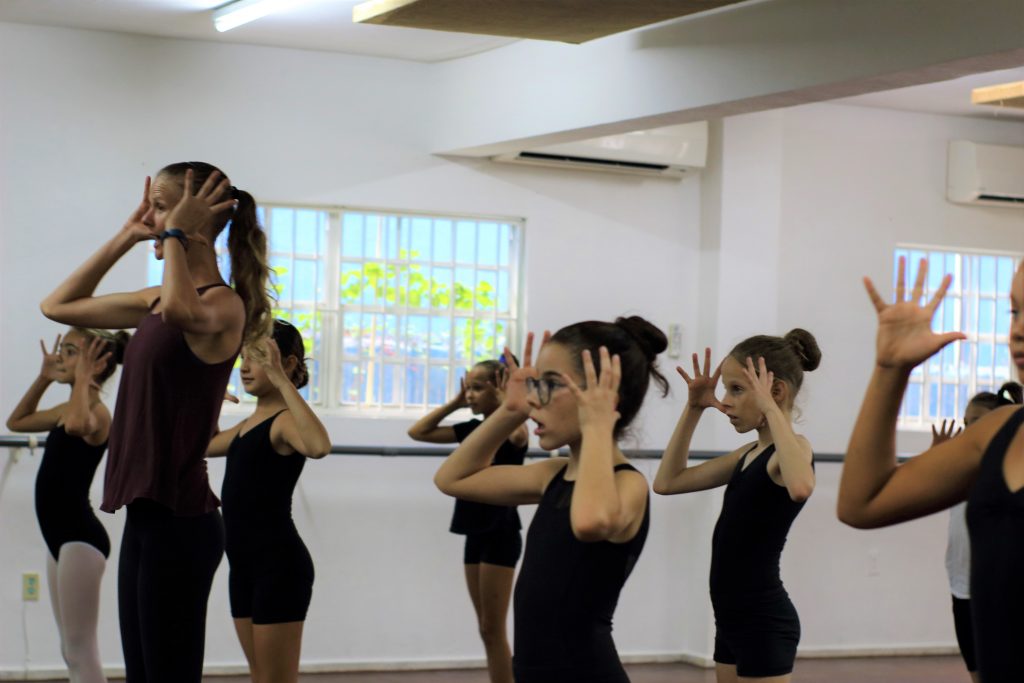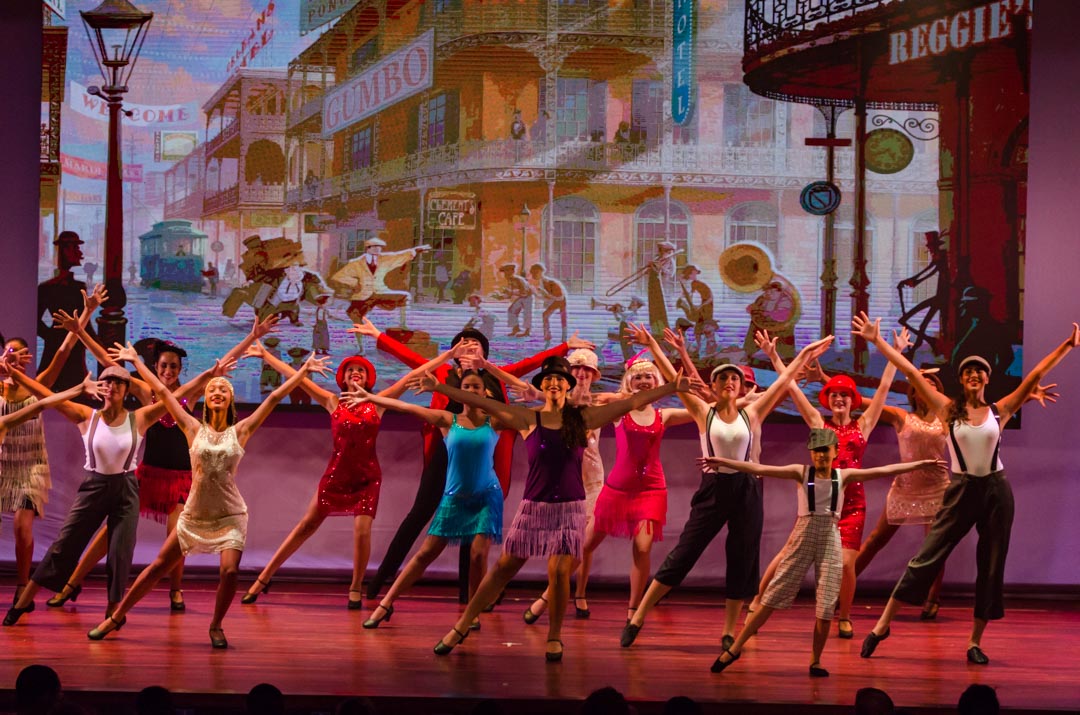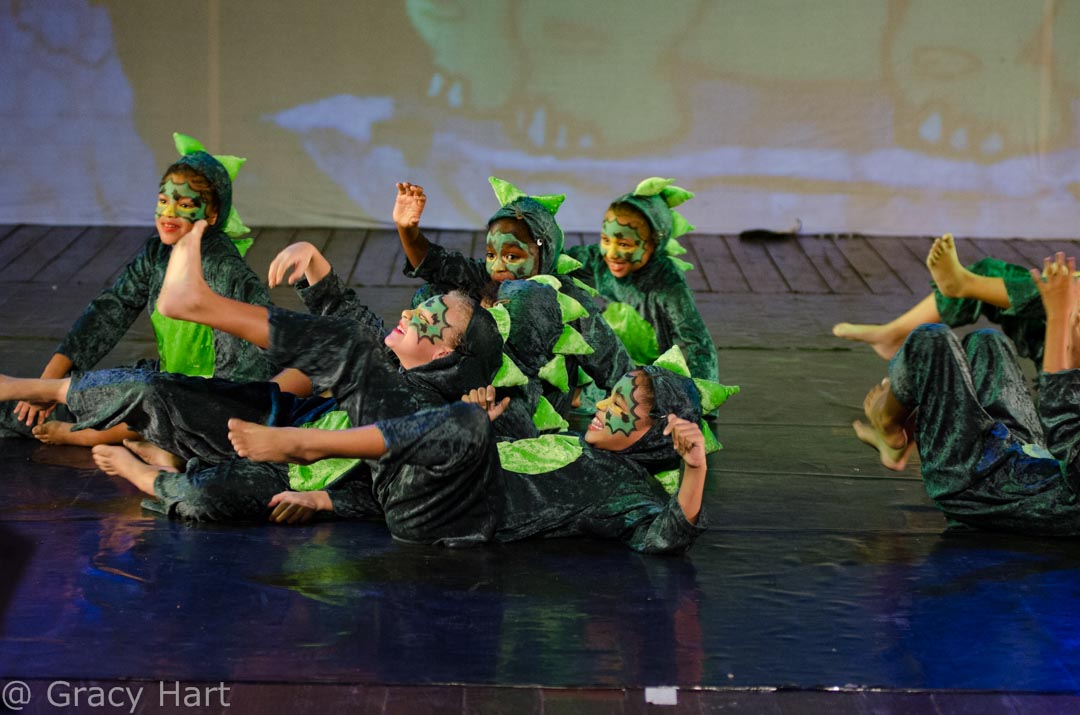Tessa van der Zande, entrepreneur of the month / June 2020, ArtEZ Business Centre
Dance in Education, Arnhem
Every month, the ArtEZ Business Centre and the courses together select a student or alumnus as Entrepreneur of the Month. Their stories give you an idea of what to expect, based on current topics from the professional field. Is there a secret to cultural success? Do you have to excel in your art or is it about selling yourself? Is it a matter of luck, wisdom, hard work or a good strategy?

Tessa van der Zande was born and raised on Curaçao. She graduated from the Dance in Education program at ArtEZ and, after drifting around the world for a while, has returned to her island. After 3 years of teaching, she has taken over her ‘old school’ and she’s been leading it for two years now with a lot of joy and passion. During the lockdown in Curaçao, Tessa had to find new ways of teaching. In the interview she describes how she’s managed to keep classes going
What drives you in your profession?
Het plezier van mijn leerlingen. Als ze naar de klas rennen, of vertellen dat ze thuis geoefend hebben. Als ze een knuffel komen geven of vragen welk liedje het was van de warming up, of dat ouders zeggen dat ze nu wel echt ziek worden van het dansje omdat de kids het thuis 1000x laten zien. Ik heb zelf een enorme passie voor dans, die wil ik graag overbrengen op de leerlingen, zodat ze net zo enthousiast worden. Dan werken ze vanzelf hard en kun je alles aan ze leren. I’m very passionate about dance myself. I want to make sure my students are equally excited. Then they’ll work hard by themselves and you’ll be capable of teaching them anything.
Who or what is your greatest inspiration?
That has to be my predecessor, Rita Koeks. She is amazingly selfless; everything she does is for the school and the students. I love that. She’s also really creative and innovative; even though she’s been in this profession for 40 years, she keeps thinking of new activities and contributing to the school.
What is your vision on entrepreneurship in the arts?
It’s difficult for me to find a balance between commercial entrepreneurship and artistic passion. I get paid as a dance teacher, but all the performances, activities and extra work are unpaid. I love my job so much that I often forget the time. It takes so much time to do things right, to finish something or prepare something, and so you give up your time off, without earnings. Other people don’t understand that, that you’re always working at night. Besides, I live on a poor island, but I want all children who want to dance to have that opportunity, regardless of their parents’ incomes. So I admit them anyway, even if it would be better financially to have full-tuition students.
When did you take over the dance school on Curaçao and how did you go about that?
I took over the dance school Turning Point two years ago. I was born and raised on Curaçao myself and I also took classes at Turning Point. After ArtEZ I spent four years traveling and, among other places, lived and taught in Australia. Once I returned to Curaçao, I took over the school after 3 years of teaching. A huge step for someone with only a little experience! With 400+ students and a fully manual administration, no resources for costumes (i.e., make everything yourself) and all the additional activities, it’s a ton of work!
Other than the regular dance classes, managing orders and maintenance, and keeping on top of the student and financial administration, we have a really busy planning. Every year we do 2 or 3 extra performances or shows, a movie night for the little ones, a dance marathon, a “dance exam” for the children, and guest classes throughout the year by foreign teachers who visit the island. Once every other year, we organize a choreography contest for children aged 9 and up. The final round takes place in a theater, with an audience and a real jury! We also take a study trip to the USA every other year, and we do a big show with the entire school. The calendar is pretty full, but that keeps things interesting. You’re always active and creative!

Are there many similarities to Dutch dance schools?
I think there are. You have your usual classes and age ranges. At our school, they can pick a style (classical, jazz, hiphop etc) once they’re in groep 6 [approximately nine years old]. What is a challenge here is the number of classes that children are allowed to take; school always comes first here. The children and the teens are all brought and picked up by their parents, we don’t bike here, so the classes have to fit in the family schedule. Another major difference is that we lose almost all our students once they’re around 18; almost everyone goes off to continue studying in the Netherlands or the U.S. Other differences are, for example, the work involved in making costumes and running a show. We don’t have a real theater, so we do our performances in big halls and other galleries that aren’t fully equipped for dance performances. For the same reason, our students never get to see a live dance show. Dance companies don’t find their way to our island and the children have seen little to nothing. Videos on the internet don’t exactly offer ideal examples of professional dance.
We don’t have big stores here, so everything needs to be imported, including simple things for class like ballet leotards, shoes and tight. The costumes we have to make entirely by ourselves!
Other than that, the classes are often bilingual – Dutch-Papiamento and Dutch-English. But I think that Dutch class compositions these days also include many languages and cultures!

What challenges have you faced and how have you resolved them?
Finding new teachers is incredibly difficult. You won’t find them on Curaçao – we have 3 dance schools, and every qualified dance teacher on the island works at one of them. It’s difficult to attract someone from the Netherlands to come and live here for a year. I don’t understand why, because it’s an incredible experience!
How was the lockdown on Curaçao?
We had a very strict lockdown. There was a curfew from 21.00-06.00 during which nobody was allowed to be on the streets. Everything was closed other than supermarkets and pharmacies. Only one person per household could go to those (you weren’t even allowed to sit in the car together) and based on your “number plate of the day” there were two days a week that you were allowed to drive. So we were really stuck at home, no running, no swimming, no walking the dog, nothing!
Fortunately, the measures were relaxed after 8 or 9 weeks, and we’re slowly picking up where we left off. Curaçao is going through a difficult time, since the economy relies heavily on tourists that aren’t coming now. But you can also see that a lot of people realize we’re in this together, and we all need to work together to get past this. It’s led to a lot of solidarity and that’s been really lovely to see.

How did you manage to teach during the lockdown?
We got through the lockdown all right. Our students don’t all have internet and/or computers at home, so we missed many of them in the last two months. We worked through Zoom. That took some time getting used to, especially with the unstable internet here, a lot of time-lag, faltering sound and displays giving out. But it was definitely great to see the students, to talk for a little bit before and after classes and take a look inside their homes. They were overjoyed to see each other again and have a moment of distraction through dance.
Fortunately, we’re back in the studio now. We marked the floor with X symbols and put tape on the barres so that the kids maintain enough distance from each other. After every class we air the rooms, wipe all surfaces with 70% alcohol. We wash our hands and keep our distance. COVID-19 didn’t spread widely on Curaçao, so the lockdown ended and we were allowed to reopen with precautionary measures. Of course, we had to postpone the June show, which is especially sad for our students who are moving away – including almost two full classes of graduated high school students who have been dancing with us since they were kids!
What is your vision of the future? Where do you want to be in 5 years?
I would love to have my own building! We have outgrown our two studios, there is a long waiting list of students and we can’t accept all of them. I also hope we’ll have more collaborations with interns, for example, from the Netherlands or the U.S. – that would be a beautiful experience both for the students and the interns. I hope the island will get its own theater one day, it would be amazing if dance companies came and performed here!
What do you think is a real ‘Must Have, See or Do’ for every artist?
Must have: passion, creativity and lots of energy!
Must see: shows of others! Expand your view and be inspired by others. It might be an amazing and inspiring show. Or you might hate it, which is also OK. It’s about seeing what others experience, how they shape and express that and what the profession means to them.
Must do: travel for your artistic discipline to a country or (big) city where your profession is strongly represented. For dance, for example: New York. There is so much to see, do and experience there!